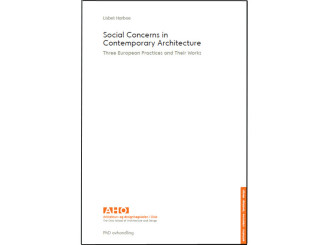Thesis
Social concerns in contemporary architecture : three European practices and their works

For some time now, architectural writers and curators have pointed to a new social engagement in contemporary architecture. What does this renewed social interest consist of, and how does it materialise? The thesis looks at contemporary architectural practices whose works and ways of working display a distinct social commitment. Through her research, Lisbet Harboe identifies a set of shared social concerns and uncovers a diverse range of working methods discernable in today’s architectural landscape. Three architectural practices are selected for in-depth studies; Lacaton & Vassal Architectes, Fantastic Norway and Collectif Exyzt. Based on in-depth explorations of their works and ways of working, the study investigates how these architects in- corporate social concerns into their practice and how these concerns inform their works. The study moves from practice to theory, using selected theoretical and historical references to contextualise and interpret the
findings. Informed by the specificities of local situations rather than overarching theories, the studied practitioners are concerned with bottom-up viewpoints and initiatives, and a more just distribution of architectural qualities. They do not produce a “social architecture”, but create environments – physical or processual – that relate to, facilitate, and improve social life in its broadest sense. Combining pragmatic approaches and fantastic solutions, their works rely on a sense of social responsibility and a hope for step-by-step change.

